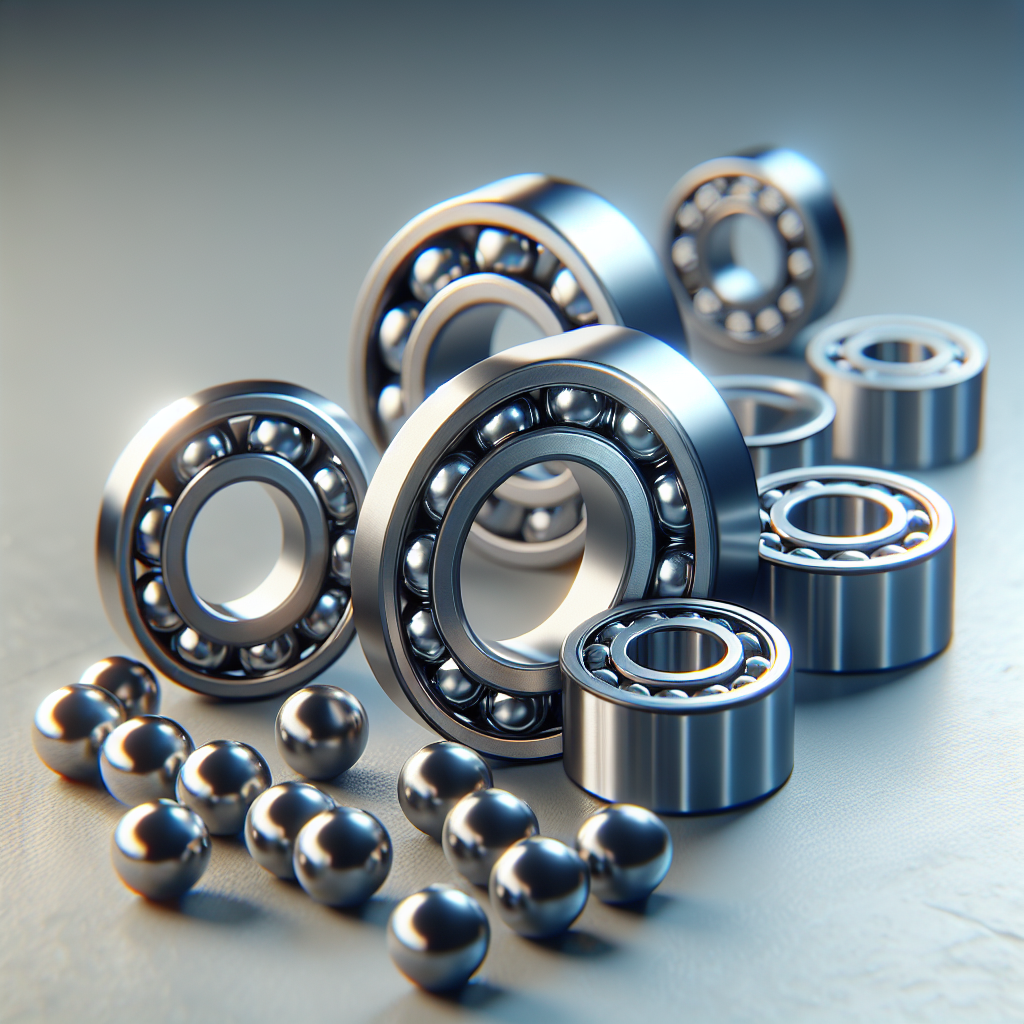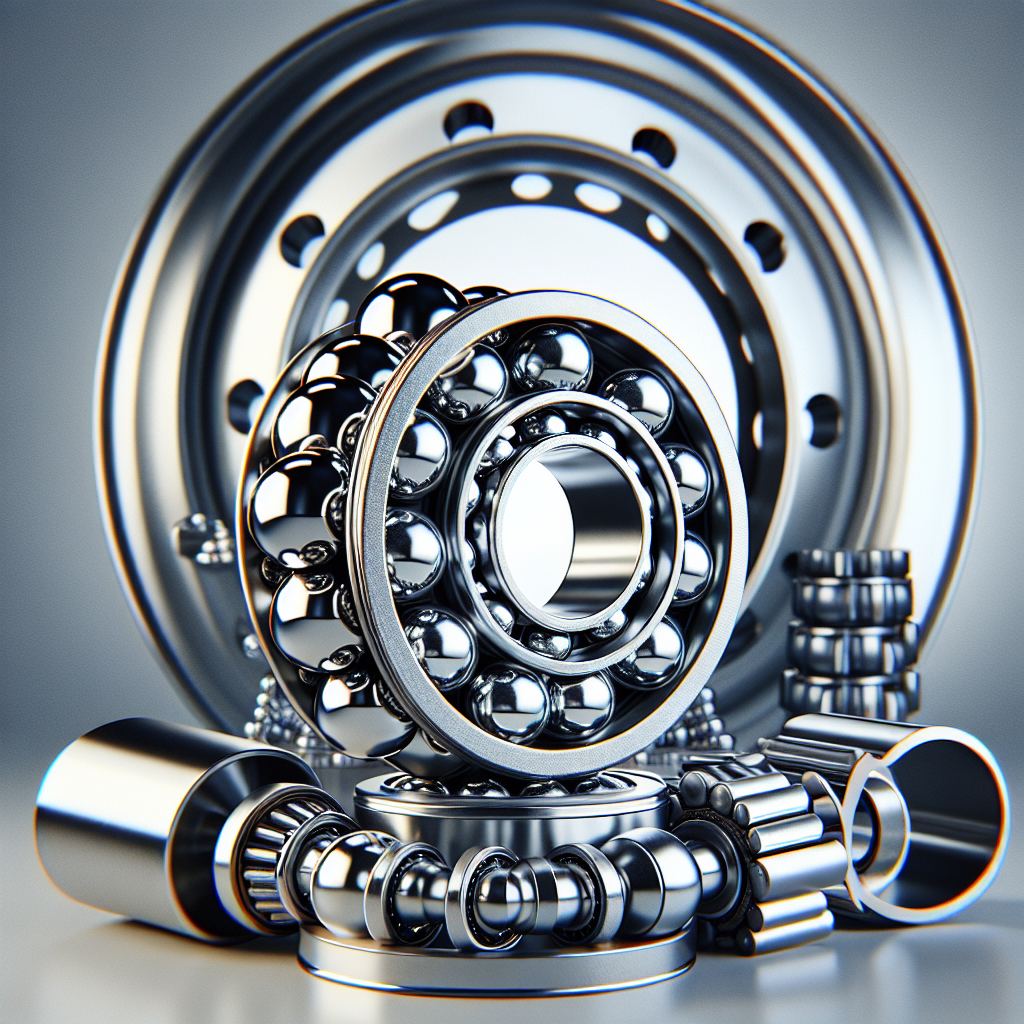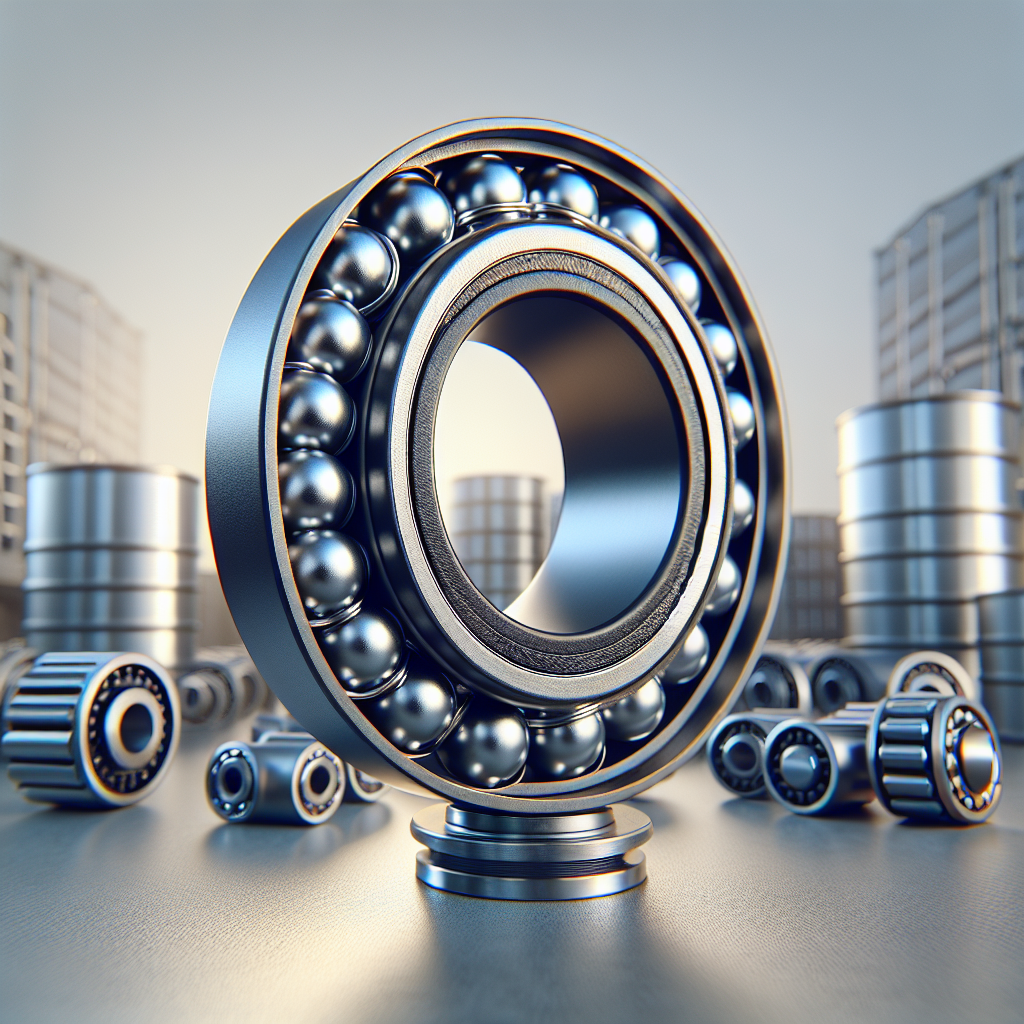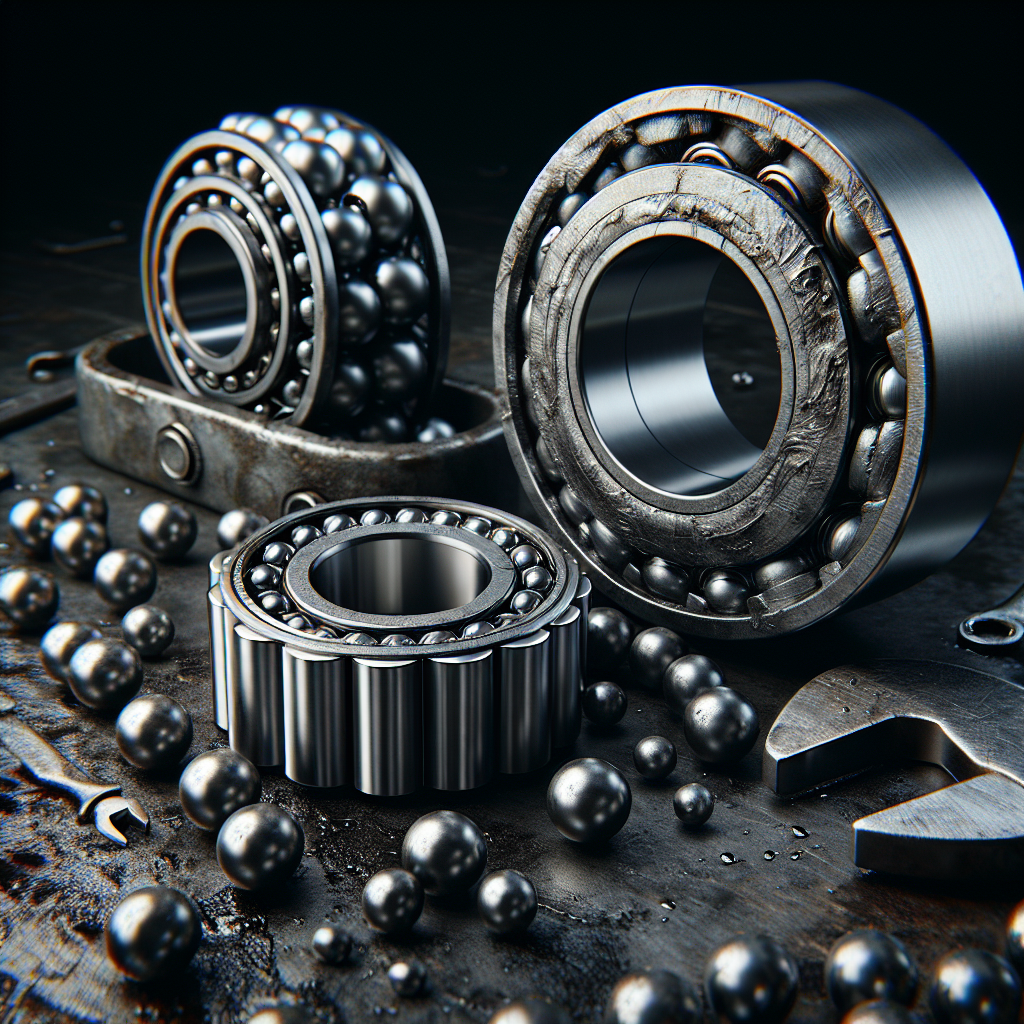Trailer wheel bearings play a crucial role in ensuring the smooth operation of your trailer. These small yet vital components are designed to reduce friction between the wheel and axle, allowing for efficient rotation. Without properly functioning bearings, trailers can experience significant issues, including overheating, uneven tire wear, and even complete wheel failure.
Understanding the types and functions of trailer wheel bearings is essential for any trailer owner. There are generally two main types of bearings used in trailers:
- Ball Bearings: These are the most common type and provide a smooth and efficient rotation. They are typically used in lighter trailers.
- Roller Bearings: Used in heavier trailers, these bearings can handle greater loads and provide increased stability.
Each type serves the same fundamental purpose, but their design and application can vary based on the trailer's load capacity and intended use. Regular maintenance, such as checking for wear and tear, ensuring proper lubrication, and replacing damaged bearings, is vital for optimal performance.
Tow with peace of mind, knowing that trailerwatchdog is standing guard. Our monitoring system will alert you to potential issues before they escalate, ensuring a safer towing experience.
Are All Trailer Wheel Bearings the Same?

When it comes to trailer wheel bearings, one might assume that all bearings are created equal. However, this is far from the truth. Are trailer wheel bearings universal? The answer is no. There are various types of wheel bearings designed to cater to different trailers, each with specific characteristics and requirements.
One of the key differences lies in the size and load capacity of the bearings. Bearings are designed to fit specific axle sizes and must accommodate the weight of the trailer and its cargo. For instance:
- Standard Bearings: Common in smaller trailers, these are typically easier to find and replace.
- Heavy-Duty Bearings: Found in larger trailers, these are built to support heavier loads and often require more specialized maintenance.
Additionally, the materials used in manufacturing bearings can vary. Some may be constructed from steel, while others might utilize more advanced materials like ceramic or composite materials, which can provide enhanced durability and resistance to wear.
Moreover, trailers can have different axle configurations, such as single axle or dual axle, influencing the type and number of bearings required. Therefore, it is essential to consult your trailer's specifications or a professional when selecting the right wheel bearings.
Key Factors in Trailer Wheel Bearing Compatibility
Understanding the key factors in trailer wheel bearing compatibility is essential for ensuring your trailer operates safely and efficiently. Compatibility issues can lead to increased wear and tear, decreased performance, and even catastrophic failures if not addressed properly. Here are the primary factors to consider:
- Axle Size: The diameter and width of the axle must match the bearing specifications. Mismatched sizes can cause improper fitment, leading to excessive play or binding.
- Load Rating: Each bearing has a specific load rating that indicates the maximum weight it can safely support. It is crucial to select bearings that can handle the weight of the trailer and its payload.
- Type of Bearing: There are different designs, such as roller bearings and ball bearings, each suited for specific applications. Understanding which type is needed for your trailer can impact performance and longevity.
- Seal Type: The seals on bearings help keep dirt and moisture out while retaining lubrication. Different trailers may require different seal styles, which can affect bearing lifespan.
- Brand Compatibility: While some bearings may appear similar, they can have subtle differences in design or material composition. Sticking with the manufacturer's recommended parts can help ensure compatibility.
By paying close attention to these factors, you can prevent compatibility issues and maintain the optimal performance of your trailer. Proper selection and maintenance of wheel bearings contribute significantly to the safety and efficiency of your towing experience.
How to Identify Your Trailer Wheel Bearings

Identifying your trailer wheel bearings is a vital step in maintaining your trailer's safety and performance. Proper identification ensures that you select the right replacement parts when needed. Here are some practical steps to help you identify your trailer wheel bearings:
- Check the Manufacturer's Documentation: Begin by consulting the owner's manual or any documentation provided by the manufacturer. This will often include specifications for the wheel bearings used in your specific trailer model.
- Examine the Bearing: If you need to replace your bearings, carefully remove them from the hub. Look for any identifying markings, such as part numbers or brand names, which can help you find the exact match.
- Measure the Size: Use a caliper or measuring tape to check the inner and outer diameter of the bearing, as well as its width. These measurements will be crucial in finding a compatible replacement.
- Assess the Type: Determine the type of bearing you have, whether it's a ball bearing, roller bearing, or another design. Understanding the type will assist in sourcing the right replacement.
- Consult with a Professional: If you're unsure or having difficulty identifying your bearings, consider reaching out to a professional or a specialist at a trailer parts store. They can guide you based on your trailer's specifications.
By following these steps, you can ensure that you have the correct information to maintain your trailer's wheel bearings effectively. This proactive approach will help avoid potential issues down the line and keep your trailer on the road safely.
Maintaining Trailer Wheel Bearings for Longevity

Proper maintenance of your trailer wheel bearings is essential for ensuring their longevity and optimal performance. Neglecting these components can lead to premature wear or catastrophic failure, potentially resulting in costly repairs and safety hazards. Here are key maintenance tips to keep your trailer wheel bearings in excellent condition:
- Regular Inspections: Schedule routine inspections of your trailer's wheel bearings, especially before long trips. Look for signs of wear, such as excessive play, unusual noises, or overheating.
- Cleaning: When inspecting your bearings, clean them thoroughly to remove dirt and debris. Use a suitable solvent and a soft brush to avoid damaging the bearings.
- Lubrication: Ensure that your bearings are adequately lubricated. Use high-quality bearing grease that meets the manufacturer's specifications. Over time, grease can break down, so it's important to replenish it regularly.
- Seals and Dust Covers: Check the seals and dust covers around the bearings for any signs of damage or wear. These components are crucial in preventing contaminants from entering and damaging the bearings.
- Temperature Monitoring: Consider installing a trailer monitoring system that provides real-time temperature data for your wheel bearings. Excessive heat can indicate a problem, allowing you to address issues before they escalate.
By following these maintenance practices, you can significantly extend the life of your trailer wheel bearings and enhance the overall safety and reliability of your trailer.
Conclusion: Importance of Choosing the Right Bearings

Choosing the right bearings for your trailer is not just a matter of convenience; it is crucial for ensuring safety and performance while on the road. The right bearings can greatly influence the efficiency and longevity of your trailer, impacting everything from handling to maintenance costs. When selecting bearings, consider factors such as:
- Load Capacity: Ensure the bearings can handle the weight of your trailer and cargo.
- Material Quality: High-quality materials can withstand wear and provide better resistance to corrosion.
- Compatibility: Verify that the bearings are compatible with your trailer’s axle and wheel specifications.
Investing in the right trailer wheel bearings will not only enhance your trailer’s performance but also reduce the risk of unexpected breakdowns and costly repairs. Regular maintenance and monitoring are equally essential to maximize the benefits of your chosen bearings.
For peace of mind while towing, consider integrating a trailer monitoring system that keeps an eye on critical components. Tow with peace of mind, knowing that TrailerWatchdog is standing guard.








